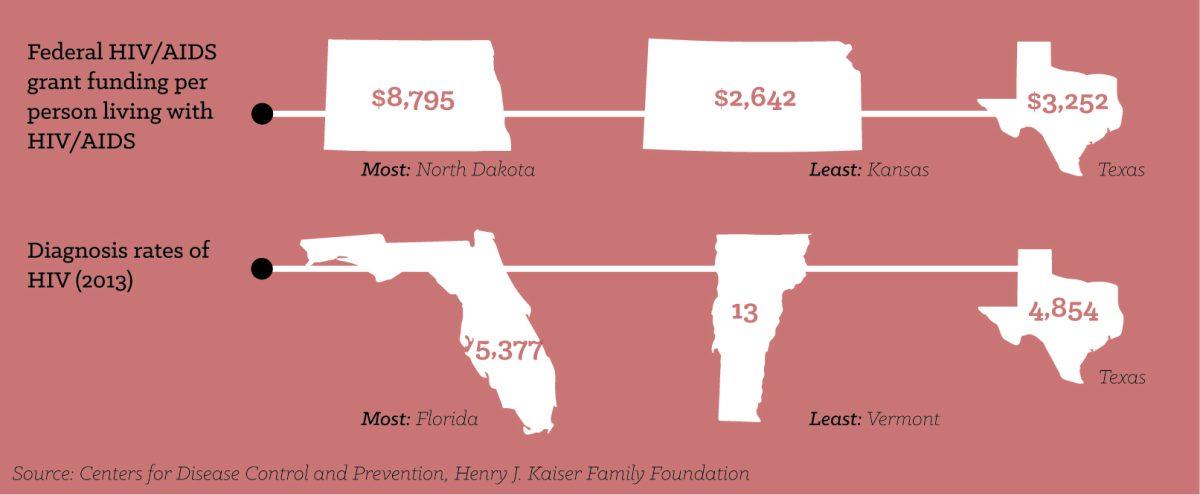Austin Mordahl vividly remembers the exact moment he was notified he tested positive for HIV.
“It was like a scary movie,” Mordahl said. “I got a letter in the mail stamped confidential from Carter Blood Services. It was absolutely terrifying.”
Mordahl, a software engineering freshman, received the news after trying to donate blood in August of 2014. He was then referred to the Health Service of North Texas, a nonprofit organization with an HIV program that refers patients to the appropriate doctor to begin treatment. His insurance covers his prescription medication, which, according to Mordahl, can run about $2,500 for a thirty-day supply.
“Every three months, I have to go in and get a full panel of tests done and the insurance doesn’t fully cover that,” Mordahl said. “Even if you do have your medicine fully covered, it’s still very expensive and inconvenient.”
If he were to have a lapse in his insurance policy, HSNT would work with him to get on state programs to be covered for medicine, the funding for which would be impacted by the budget amendment.
Mordahl believes the solution to Texas’ high rates of HIV and STDs lies in an improved education curriculum.
“We need to educate students. Tell them how (STDs) can be transmitted and how they can’t be transmitted,” Mordahl said. “Even more important than that is what you do if you test positive because that is one of the most scary things that can happen to you.”
Although his health is good and his treatment is managed, Mordahl still faces regular discrimination when informing others of his condition.
“I think the worst thing about having HIV is just the social stigma,” Mordahl said. “I’m essentially not a risk to anyone else. As soon as you tell people (about being HIV positive), they don’t want anything to do with you.”
Mordahl expressed concern about the future of those at risk of catching HIV if the proposed budget amendment passes in the Texas Senate.
“Unless you want to relegate yourself to that subhuman status that so many people like me have had to deal with, then you need to care about this bill,” Mordahl said. “If it’s not you (that’s affected), it might be somebody that you love.”














